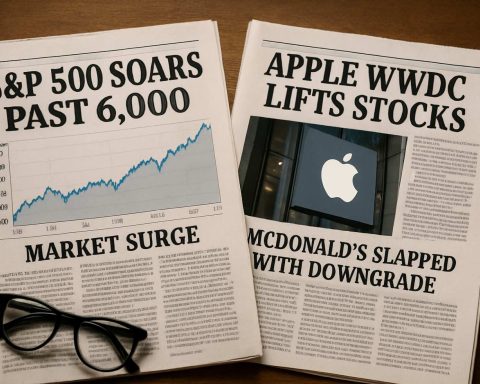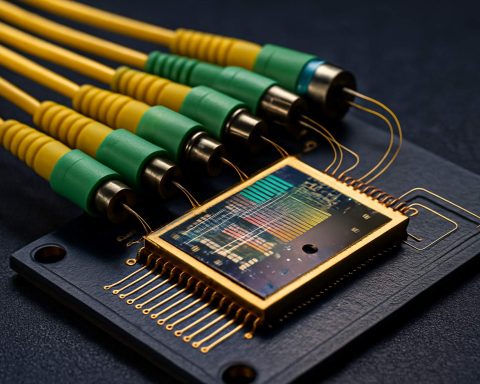In a surprising move, Super Micro Computer (Supermicro), a leading provider of high-performance computing solutions, recently announced its decision to delist from public trading. The decision is drawing attention and speculation across the tech industry, prompting discussions about its implications for the future of computing technologies.
Market Context: Supermicro’s delisting comes at a crucial time when tech companies are reevaluating their market strategies amid global economic uncertainties. As a key player in the data centre solutions and cloud computing domains, Supermicro’s departure from public scrutiny raises questions about the evolving landscape of tech investments.
Future Implications: The privatisation could mark a strategic pivot for Supermicro, potentially allowing more flexibility in research and development. This move might enable the company to better navigate technological advancements, like artificial intelligence (AI) and the Internet of Things (IoT), free from the pressures of quarterly earnings reports. This is crucial as competition in high-performance computing intensifies.
Industry Impact: The shift also suggests a broader trend where tech firms reconsider their positions in volatile equity markets. By going private, Supermicro may inspire other tech firms to innovate without the constraints of shareholder expectations, impacting how emerging technologies are developed and deployed.
Supermicro’s delisting could signify a turning point, reflecting broader shifts in how innovation is managed within the tech industry. As the dust settles, stakeholders brace for a future where tech companies might increasingly seek freedom from traditional market undervaluation.
Supermicro Delisting: A New Era for Tech Innovation and Its Environmental Implications
Super Micro Computer’s (Supermicro) decision to delist from public trading marks a significant moment in the technology sector, with broad implications for industries globally. This move comes at a time when tech companies, facing global economic uncertainties, are reevaluating their market strategies. As a leading entity in high-performance computing, Supermicro’s shift towards privatisation poses important questions about the future of computing technologies and their impact on various facets of life.
Environmental Impact of Technological Advancements
Technological innovations, particularly in the realms of artificial intelligence (AI) and the Internet of Things (IoT), promise to revolutionise various sectors, including energy, agriculture, and transportation. However, these advancements also bear environmental consequences. Increased computing power demands significant energy resources, often derived from non-renewable sources, which contribute to environmental degradation and climate change.
By going private, Supermicro might gain the flexibility necessary to invest more in sustainable practices. Without the constant pressure from public shareholders to show short-term profits, the company can explore and invest in energy-efficient technologies and greener alternatives in product development. This could include optimising data centres and reducing carbon footprints, thereby aligning with global sustainability goals.
Human and Economic Connections
Supermicro’s delisting mirrors a broader industry shift towards innovation-driven models, potentially reconfiguring job markets and economies worldwide. As companies seek independence from quarterly financial performance pressures, the focus can shift to long-term investments in human capital and technological breakthroughs. This might lead to the creation of specialised jobs that require new skill sets geared towards sustainable tech development, reflecting a shift towards an economy that values environmental conscience alongside growth.
Moreover, such industry evolution may spearhead significant advancements in sectors like healthcare, education, and smart city infrastructures. By investing in AI and IoT, companies can innovate in ways that address some of humanity’s most pressing challenges, such as resource management, personalised medicine, and global connectivity. These efforts can lead to improving quality of life and fostering more equitable access to technological benefits worldwide.
Future Prospects
Supermicro’s strategic pivot might signal a new dawn where tech companies increasingly opt for private control to foster innovative and responsible technology development. This emerging trend might significantly alter the technological landscape, with potential impacts reaching far beyond the confines of industry.
In the future, as Supermicro and similar companies continue to innovate across AI and IoT, there is potential for environmental and societal integration. Innovative technologies can play a pivotal role in solving the world’s sustainability challenges, serving as a bridge to a future where technology supports a harmonious balance between human progress and ecological preservation.
This shift in strategy underscores a hopeful vision for humanity: one in which tech leaders prioritise sustainable innovation as a path towards a resilient and technologically advanced society, capable of overcoming the environmental hurdles of today while building towards a better future for generations to come.
Supermicro’s Bold Move: Revolutionising Tech Innovation and Investment Strategies
Delisting Trends and Industry Comparisons
The decision by Super Micro Computer (Supermicro) to delist from public trading is a part of a growing trend among tech firms reconsidering their relationship with the stock market. When assessing companies like Dell and Tesla, which have successfully navigated the privatisation path, it’s clear that going private can provide significant strategic benefits. The decision aligns with the industry’s broader shift towards flexibility and innovation without the constraints of public market pressures.
Potential Benefits and Limitations of Going Private
Supermicro’s privatisation is likely to unlock a range of benefits, including reduced regulatory paperwork and the ability to make long-term strategic decisions without the immediate pressures of quarterly earnings reports. This can particularly boost research and development, especially in areas requiring substantial investment like AI and IoT. However, the limitations include potential challenges in raising capital and reduced clarity for stakeholders regarding financial health.
Innovation Boost Through Privatisation
Privatisation for Supermicro could mean more aggressive innovation strategies in high-performance computing. It potentially allows the company to reallocate resources towards long-term projects, gearing up for breakthroughs in cloud computing and AI. Without public trading pressures, Supermicro might lead more daring projects that could reshape the technological landscape, setting new benchmarks in technology development and deployment.
Sustainability and Ethical Considerations
In addition to innovation, Supermicro’s delisting might also amplify its focus on sustainability. By going private, the company can choose to invest more resources into sustainable tech practices, such as energy-efficient data centres, without immediate pressure from shareholder returns. Such decisions could set precedents for environmentally conscious strategies within the tech world.
Market Predictions and Technological Evolution
Market analysts predict that Supermicro’s move might trigger similar decisions among its peers, leading towards a privatisation wave in tech. As industries such as AI, IoT, and cloud solutions face rapid evolution, companies might prefer the freedom of private operation to adapt and innovate more swiftly. The long-term outlook appears to be a landscape where tech giants are less constrained by market volatility and more guided by innovation potential.
For more insights into the evolving landscape of technology and computing, explore more tech industry updates at IBM and discover sustainable tech initiatives at Microsoft.












